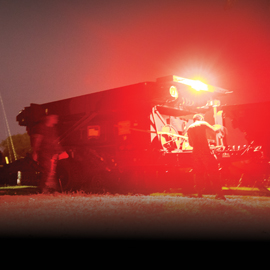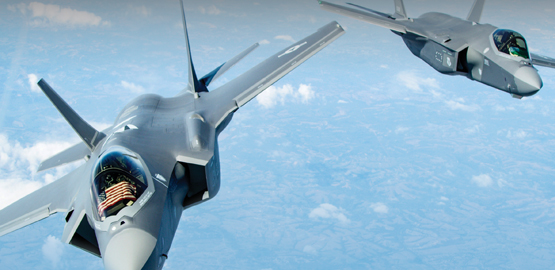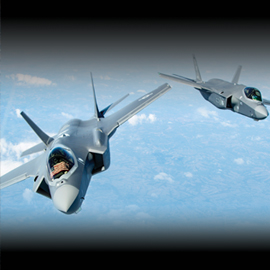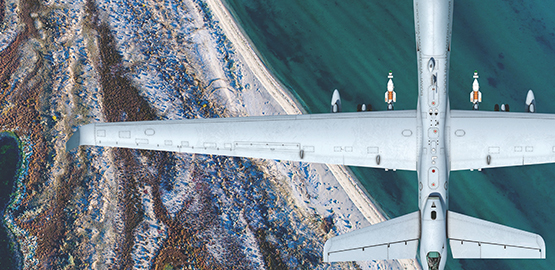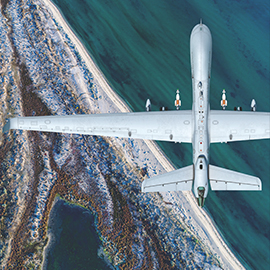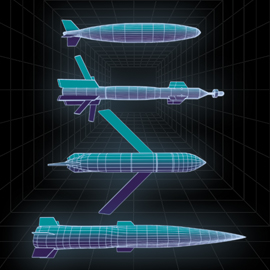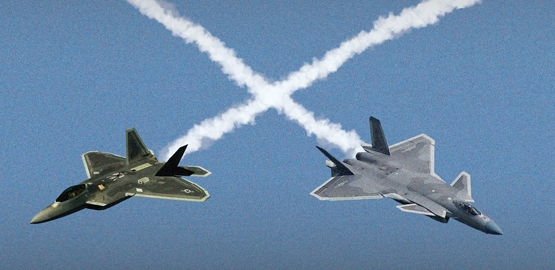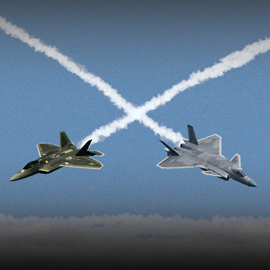News
Defense Spending May Be in Budget Crosshairs
The early skirmishes on the long-term budget debate have been about trimming entitlement programs, like Medicare and Social Security. More quietly, but just as importantly, some Republicans have broached cutting defense/.../"There is a growing divide between the defense hawks and the fiscal hawks (among Republicans), and it is a matter of prioritization,'' said Todd Harrison, a senior defense budget fellow at the nonpartisan Center for Strategic and Budgetary Assessments. "Which do you think is a higher priority right now? Getting our budget in balance or funding defense?''Harrison said that "any real, serious plan to reduce the deficit is going to have to spread the cuts across all the big programs in the federal government, and look at the revenue side.''
From Protectorates to Partnerships
Since World War II, America’s network of European and Asian alliances has underwritten security and prosperity around the globe. While these alliances have been a source of strategic and political advantage for the better part of the past sixty years, they have not always been militarily essential. That is rapidly changing. The United States is confronted by revisionist powers across Eurasia (Russia, Iran and China), as well as the continuing threats posed by Islamic extremism, the almost certainly protracted aftershocks of the Jasmine Revolutions, and the potential for unrest in nuclear-armed states like North Korea and Pakistan. Furthermore, all of this comes at a time of enormous fiscal constraint at home. What used to be a U.S. preference for working in concert with others is fast becoming an imperative.
The Challenges After Gates
Spread of Weapons, Cyber Threats, Tight Budgets Await
U.S. Republican Budget Sets Likely Ceiling for Defense Spending
The U.S. House Republican 2012 budget proposal represents the ceiling for talks on national security spending next year even as it leaves the Obama administration’s original $671 billion request intact, analysts and lawmakers said. The proposal, unveiled by Budget Committee Chairman Paul Ryan of Wisconsin yesterday, provides $553.1 billion for regular Defense Department operations and $117.8 billion for military operations in Afghanistan and Iraq for fiscal year 2012, which begins Oct. 1. “That is about the most defense is going to get,” said Todd Harrison, an analyst with the non-partisan Center for Strategic and Budgetary Assessments in Washington. Harrison said that Ryan’s budget blueprint and the Pentagon’s request for 2012 will be the “high water mark” in the debate over government spending and reducing the deficit/…/CSBA’s Harrison said he does not see any “substantial” cuts to defense in 2012. Defense is more likely to be on the “chopping block” later in the decade, starting with the 2014 budget, the first budget to be proposed after next year’s presidential election, Harrison said. “Later in the decade the situation could be substantially different,” he said.
The Enduring Costs of Continuing Resolutions
Come the end of this week, the Federal government might actually—for real this time—shut down for lack of a budget. Congress is debating a measure today that would fund the Feds for another week, and the Pentagon until Sept. 30, provided that billions are cut from other parts of the federal budget. Even if this happens, military leaders and analysts say that the continuing resolutions (CR) have already done damage to their modernization programs—damage that may be permanent/.../
Libya’s Rebels Will Need Training
If the West decides to arm Libya's disorganized rebel forces, they will have to deploy trainers on the ground and not merely deliver crates of weapons, former US officers and officials said/../Just providing equipment without instruction would mean "a lot of money that would be wasted," said Dakota Wood, a retired Marine officer and senior fellow at the Center for Strategic and Budgetary Assessments. "It isn't just the weapons that make the force effective, it's the skill with which the weapons are employed," Wood said.







